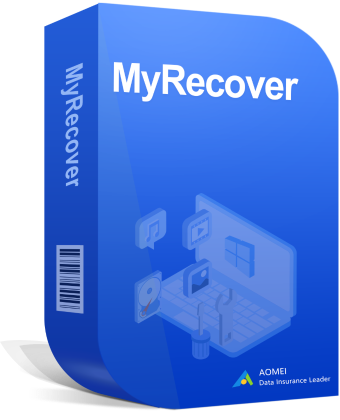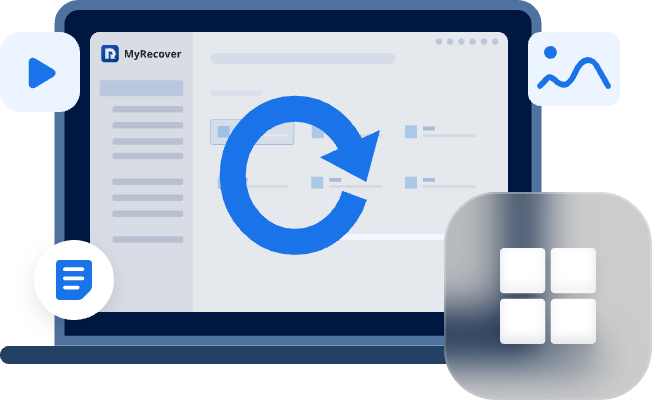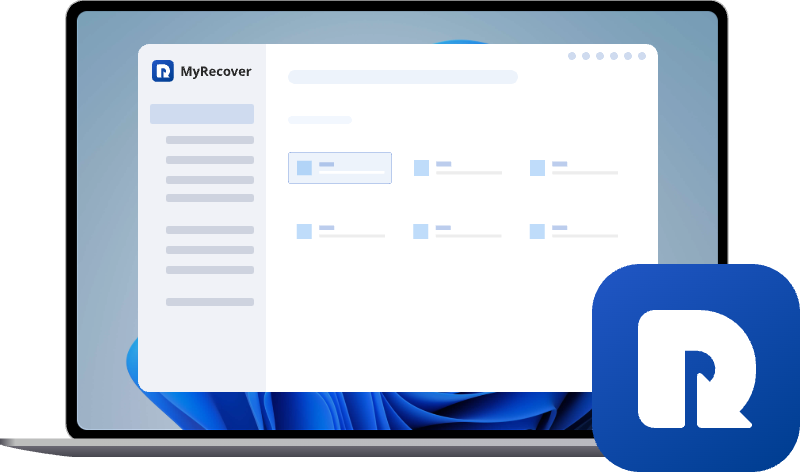Will Deleted Files Be Kept in the Recycle Bin for 30 Days? Facts Here
This article answers the critical question: will deleted files be kept in the recycle bin for 30 days? We detail Windows' Recycle Bin retention policies and provide a step-by-step guide on how to recover deleted files from recycle bin after empty using reliable data recovery software.
Will Deleted Files Be Kept in the Recycle Bin for 30 Days?
Typically, when your files have been deleted, they will go to the Recycle Bin. The recycle bin provides another security measure for you to protect your files. Why? Because you can restore deleted files from the Recycle bin after deleting them if they have not been emptied.
How long do deleted files stay in the Recycle Bin in Windows 10 or Windows 11? It depends on your operating system and the storage settings.
⭕ Without Storage Sense enabled, the deleted files in the Recycle Bin are kept forever unless you empty them or the disk space runs out.
You should know that Storage Sense is not enabled by default; it triggers when manually set up, or the low disk space on your hard drive. Thus, will deleted files be kept in the Recycle Bin for 30 days? It keeps deleted files forever by default unless you empty the trash bin or the Storage Sense is triggered.
What Happens When You Delete A File on a Computer?
When you press delete on a file from your internal hard drive, Windows doesn't immediately erase a single bit of data; it moves the deleted files to the Recycle Bin.
After deleting, the file is simply unlinked from its location in the folder structure you see in File Explorer. The space it occupies on your hard drive is then marked as "available for new data". Your old data sits there, undamaged but not accessible to the operating system until it is overwritten. Thus, you can only see the deleted files in the Recycle Bin.
Files will stay in your Recycle Bin indefinitely, just sitting there, until one of two things happens: you manually empty it, or the bin reaches its maximum allocated storage capacity. When the total size of the deleted files exceeds this limit, the oldest files in the bin are automatically purged to make room for the newer deletions.
Do Deleted Files Always Go to the Recycle Bin?
In some cases, the deleted files do not go to the Recycle Bin in Windows 11 or 10. Include:
✔️ Delete files from external hard drives, SD cards, USB flash drives, memory cards, etc.
✔️ You’re deleting large files that exceed the allocated space of the Recycle Bin.
✔️ If you have set up "Don't move files to the Recycle Bin. Remove files immediately when deleted" in the Recycle Bin properties for the drive.
How Many Days Will Files Be There in the Recycle Bin in Windows 10/11?
The time the deleted files are kept depends on the Recycle Bin settings on your operating system; they can be stored forever as long as you disabled the Storage Sense settings, unless you delete them or the disk runs out of space. Or the deleted files can be stored from 1 day to 60 days once you enable Storage Sense.
On the other hand, some deleted files are not going to the Recycle Bin, so it's permanently deleted.
How to Avoid Having Files Permanently Deleted?
There are 4 tips for not being permanently deleted:
Tip 1. Disable "Don't move files to the Recycle Bin"
The first thing you should do is uncheck the "Don't move files to the Recycle Bin" option. Here is how to do:
1. Please double-click your Recycle Bin to open it.
2. Tap the three-dot icon on the menu bar, choose Properties from the list.
3. Untick "Don't move files to the Recycle Bin. Remove files immediately when deleted.", and hit Apply > OK.
- Tips:✎...
- Customize size: Set the maximum storage size (in MB or GB) the Recycle Bin can use on that drive. A common recommendation is 5-10% of the drive’s total capacity.
- Don’t move files to the Recycle Bin: This is the equivalent of making Shift + Delete the default, which is not recommended for most users.
- By increasing the allocated size, you effectively increase the potential "shelf life" of your deleted files before auto-deletion kicks in.
Tip 2. Manage external hard drive files on the local disk
Second, copy the external hard drive files to the local disk and manage them.
Tip 3. Double-Check Files Before Emptying
Third, check important files before emptying the Recycle Bin.
Tip 4. Always back up files
Besides, always back up the files that matter to you, which can be another way to prevent them from being deleted permanently.
Use the 3-2-1 backup rule: keep 3 copies of your data, on 2 different media types, with 1 copy off-site. Enable Windows File History to automatically back up your Desktop, Documents, and Pictures folders to an external drive. Use a cloud service like OneDrive, Google Drive, or Dropbox for continuous syncing of your most critical files. A backup renders the question of recovery moot.
Recover Deleted Files from Recycle Bin After Emptying
Can you retrieve permanently deleted files from the Recycle Bin? Yes, it’s possible. If you need to recover permanently deleted files from the Recycle Bin after empty, MyRecover can do you a big favor. MyRecover is a professional Windows data recovery software and provides the following advantages:
- Recover files from any data scenarios. You can recover files from a corrupted SD card, a formatted hard drive, a RAW hard drive, a power outage corruption situation, etc.
- Recover unlimited data. It allows you to recover unlimited data in bulk, which is very useful for future use.
- Recover any files. You can recover documents, videos, audios, and photos etc, easily and quickly.
- Quick search. MyRecover uses AI technologies and algorithms to search the deleted, missing files fast and easily.
- Preview before recovery. You can preview the files before recovery to ensure they are the right files to recover.
Therefore, how to recover permanently deleted files from the trash bin with MyRecover, here it is:
1. Download and install MyRecover on your computer, then launch it.
2. Hit Recycle Bin Recovery on the left, then tap Scan on the original location of the files.
3. It will scan your permanently deleted files using a quick scan. If there are no deleted files you need, hit Deep scan to find more files. Hit OK when finished.
4. Choose the files and folders, and hit Recover.
5. Select a safe location to save these recovered files, and hit Select Folder to start the recovery. Wait for it to complete.
6. Once completed, you can check the recovered files in the destination.

- Recover Deleted Files Easily with Simple Clicks
- 1000+ File Formats Supported
- Support HDD, SSD, External Hard Drive, USB Drive, SD Card, etc.
- Quickly Find Files Using File Types, Name, Size, etc.
- Preview Files Before Recovering
- Recover Unlimited Data
FAQs about Deleted Files in Recycle Bin
Is it true that files stay in the Recycle Bin for 30 days?
No. They stay until you manually empty the bin or it gets too full, and then it deletes the oldest files to make space. It's based on storage space, not time.
Does System Restore bring back files?
No. System Restore affects system settings and programs, not your personal files like documents or photos.
Why did my Recycle Bin empty itself?
It likely reached its storage limit. When new files are deleted and the bin is full, it automatically deletes the oldest files to make room.
Are files permanently gone after emptying the bin?
Not immediately. The space they used is just marked as "available". The data remains until it's overwritten by new files. To recover it, you must use data recovery software immediately and avoid saving anything new to that drive.
On the Bottom Line
Will deleted files be kept in the Recycle Bin for 30 days? Not really. It depends on your settings in Windows 10 or 11. If you need to recover deleted files from Recycle Bin after emptying, MyRecover is a great choice. Please ensure you always have a backup in case of data loss.
Besides, you can recover files from a crashed computer, formatted disk, and many more. So, why not give it a try now?


